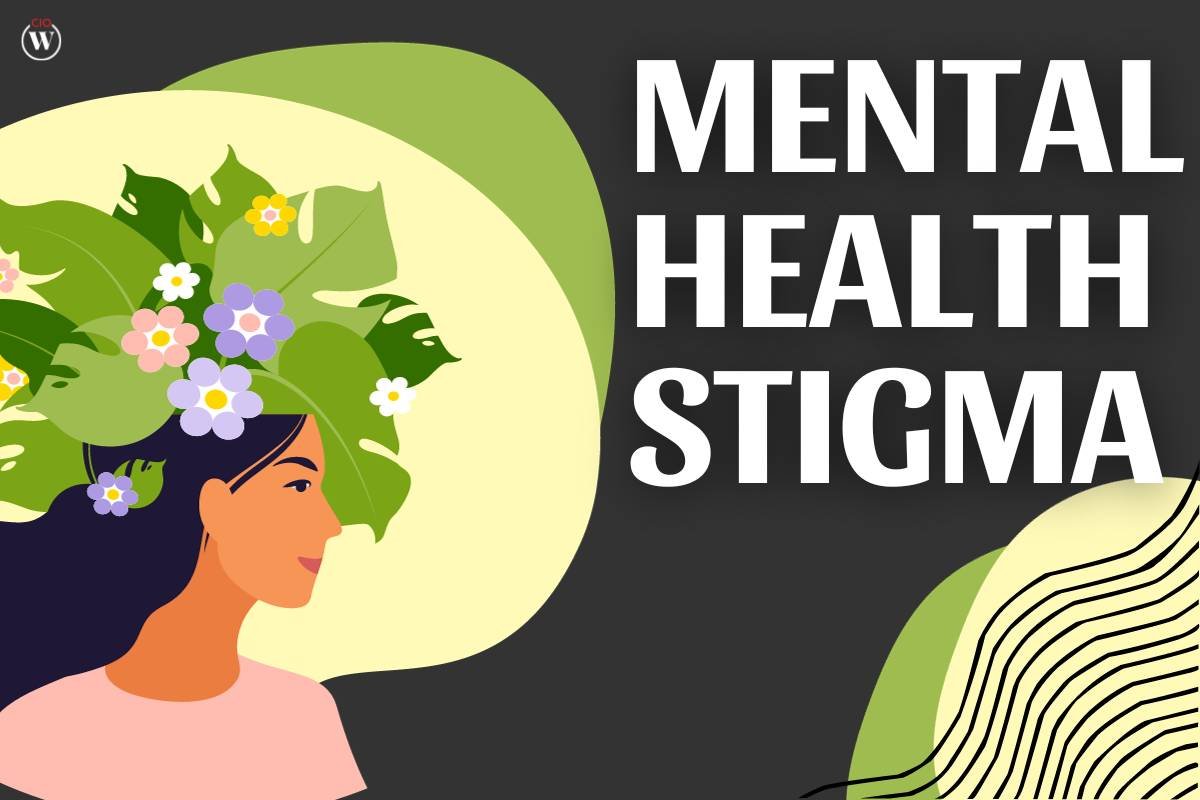The Stigma Surrounding Mental Health: Impact On Claim Rates And Access To Treatment

Table of Contents
The Societal Impact of Mental Health Stigma
The stigma surrounding mental health is a pervasive societal issue with far-reaching consequences. It manifests in various ways, creating significant barriers to help-seeking behavior and hindering the path to recovery.
Misconceptions and Misunderstandings
Many misconceptions fuel the stigma surrounding mental health. These misconceptions often prevent individuals from seeking help and contribute to the perception of mental illness as something to be ashamed of. Common misunderstandings include:
- Mental illness is a weakness: This belief equates mental health challenges with a lack of personal strength or willpower, discouraging individuals from acknowledging their struggles.
- It's all in their head: Dismissing mental health conditions as merely "in their head" invalidates the very real biological and neurological factors involved.
- People with mental illness are dangerous: This harmful stereotype is fueled by media portrayals and lacks understanding of the diversity of mental health conditions and the individuals experiencing them. The vast majority of individuals with mental health conditions pose no threat to others.
These misconceptions manifest in daily life through subtle (and not-so-subtle) acts of discrimination and judgment, furthering the cycle of silence and isolation.
Fear of Judgment and Discrimination
The fear of judgment and discrimination is a major barrier preventing individuals from seeking help for mental health conditions. Individuals worry about:
- Job loss: Disclosing a mental health condition can lead to employment discrimination, impacting job security and career progression.
- Relationship strain: Fear of rejection or misunderstanding from family and friends can deter individuals from seeking support.
- Social stigma: The fear of being ostracized or treated differently by society can create significant barriers to seeking help.
Statistics show a correlation between mental health disclosures and job loss or strained relationships, further highlighting the devastating impact of stigma.
The Role of Media Portrayals
Media portrayals of mental illness significantly influence public perception. Often, these portrayals rely on harmful stereotypes, depicting individuals with mental health conditions as violent, unpredictable, or simply "crazy." This contributes significantly to the stigma surrounding mental health. However, the media also holds the power to promote understanding and reduce stigma. Positive and accurate portrayals of individuals living with mental illness, alongside educational campaigns, can help shift public perception.
Lower Claim Rates for Mental Health Treatment: A Consequence of Stigma
The stigma surrounding mental health directly contributes to lower claim rates for treatment, revealing a significant gap between need and access to care.
Underreporting and Underdiagnosis
Due to stigma, many individuals are less likely to report their mental health struggles. This underreporting leads to:
- Inaccurate prevalence data: The true extent of mental health issues in a population remains unknown due to underreporting.
- Inadequate resource allocation: Without accurate data, resources for prevention, treatment, and support services are often insufficient.
The gap between the number of people who need treatment and those who actually receive it is alarming, highlighting the critical need to address stigma.
Financial Barriers and Lack of Insurance Coverage
Inadequate insurance coverage significantly hinders access to mental healthcare. Many individuals face:
- High out-of-pocket costs: Treatment for mental health conditions can be expensive, creating a significant financial burden.
- Limited insurance benefits: Insurance plans often offer less coverage for mental health services compared to physical healthcare.
- Navigational challenges: Understanding insurance policies and accessing benefits can be complex and overwhelming.
Accessibility Issues and Geographic Limitations
Geographical limitations and lack of access to mental health professionals further compound the problem. Many individuals face:
- Long wait times: Shortages of mental health professionals can result in significant wait times for appointments.
- Limited availability of specialists: Access to specialized care, such as psychiatrists or specific therapists, may be particularly challenging in certain areas.
- Transportation barriers: Accessing care can be difficult for those without reliable transportation.
Overcoming the Stigma and Improving Access to Treatment
Addressing the stigma surrounding mental health and improving access to treatment requires a multi-pronged approach involving education, advocacy, and individual action.
Raising Awareness and Education
Public awareness campaigns and educational initiatives are vital in challenging misconceptions and fostering understanding:
- Open conversations: Promoting open and honest conversations about mental health in homes, schools, and workplaces is essential.
- Mental health literacy: Educating the public about different mental health conditions, their symptoms, and treatment options can reduce fear and misconceptions.
- Positive role models: Showcasing stories of individuals who have successfully managed their mental health can reduce stigma.
Advocacy and Policy Changes
Advocating for policy changes is crucial to improving access to care:
- Increased funding: Investing in mental health services, research, and workforce development is essential.
- Parity legislation: Ensuring equal coverage for mental and physical healthcare under insurance plans is vital.
- Improved access to care: Implementing strategies to increase the availability of mental health professionals in underserved areas is necessary.
Seeking Professional Help and Support Networks
Seeking professional help and utilizing support networks are crucial steps towards recovery:
- Therapy and counseling: Therapy can provide individuals with the tools and support they need to manage their mental health.
- Support groups: Connecting with others facing similar challenges can foster a sense of community and reduce feelings of isolation.
- Online resources: Various online resources offer support, information, and referrals to mental health professionals.
Conclusion:
The stigma surrounding mental health significantly impacts claim rates and access to treatment. Misconceptions, fear of judgment, and inadequate media portrayals contribute to underreporting, financial barriers, and accessibility issues. To overcome this challenge, we must raise awareness, advocate for policy changes, and encourage individuals to seek help. Let's work together to dismantle the stigma surrounding mental health, increase claim rates for treatment, and ensure everyone has access to the support they deserve. Improving mental healthcare access requires collective action—from individuals seeking help to policymakers creating supportive environments. Let's prioritize mental health and build a more inclusive and supportive society.

Featured Posts
-
 Frances Rugby Victory A Masterclass Performance By Dupont 11th Conduct
May 02, 2025
Frances Rugby Victory A Masterclass Performance By Dupont 11th Conduct
May 02, 2025 -
 Stroomloze School Kampen Start Kort Geding Tegen Netbeheerder Nieuwbouw
May 02, 2025
Stroomloze School Kampen Start Kort Geding Tegen Netbeheerder Nieuwbouw
May 02, 2025 -
 Saturdays Storm In Tulsa Report Damage To Aid National Weather Service Assessment
May 02, 2025
Saturdays Storm In Tulsa Report Damage To Aid National Weather Service Assessment
May 02, 2025 -
 Ai Powered Podcast Creation Turning Repetitive Scatological Texts Into Engaging Audio
May 02, 2025
Ai Powered Podcast Creation Turning Repetitive Scatological Texts Into Engaging Audio
May 02, 2025 -
 Understanding The Secs Position On Xrp Implications For Investors
May 02, 2025
Understanding The Secs Position On Xrp Implications For Investors
May 02, 2025
